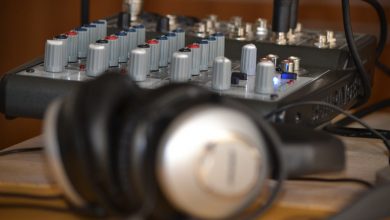Welcome To Your Adorable Dystopian Future

From the Consumerist comes this delightful story about a new product from Korean tech corporation LG (you might own one of their refrigerators, TV’s, cell phones or washing machines.) Their title is only slightly less alarming than mine.
LG Introduces House Arrest Wristbands For Small Children

From the company’s own press release;
SEOUL, July 9, 2014 — LG Electronics (LG) will extend the wearable experience to parents with children with its new KizON wristband. KizON is LG’s new wearable designed exclusively for pre-school and primary school children that offers parents a convenient way to keep track of their young children’s whereabouts. Utilizing GPS and Wi-Fi, KizON provides real-time location information allowing parents to track their children’s whereabouts on a smartphone.
Some form of this technology has been on the horizon for awhile. In 2011 I blogged about the Trick or Tracker, a smartphone app designed to track your young trick or treating Hellions on Halloween night. At the time I was mostly concerned with the broad claims made by the app developer about when it was appropriate for a youngster to go trick or treating by themselves. The app developer at 404 not found on this server objected to being described as a “dime a dozen” outfit. I objected to the creators of Zombie Slasher and Zombie Slasher:LA handing out parenting advice as if they were experts.
The Consumerist post links to a Washington Post article which touches on some of the privacy concerns inherent in these kinds of devices, but the real meaty objections come to us from across the pond at The Guardian. Although they waste a few inches of column space in their role as international fugitive/ free speech hero/ libertarian jerk Edward Snowden’s press agent, reporters Rory Carroll and Samuel Gibbs do a good job relating the story of these problematic devices, including a look at a competitor, the KMS Wristband, who beat LG to the market with their own consumer version of the technology that the Sheriff’s Department uses to keep tabs on Uncle Jake during his house arrest for embezzling from the pension fund. Carroll’s piece in particular conjures up visions straight out of Orwell,
The boys turn on the TV. Rather, it turns itself on as Aiden approaches and it lists his favourite channels. The TV notes the boys have a basketball, which has a sensor, and so suggests an NBA game. As they watch, tailored advertising invites Aiden to put a Miami Heat shirt on a personal wishlist connected to a chain store. He does so and a ping is sent to his mother, who simultaneously receives a reminder of the date of his birthday.
The network notes there is only 90 minutes left of sunlight left and that Aiden has not completed his 120 minutes of daily exercise. It shuts down the TV and gives the boys three exercise options. They choose to shoot hoops in the yard. Aiden’s mum receives an alert that they have left the house – leaving the lights on. She can track Aiden’s pulse and blood pressure as he plays.
Welcome to the future of parenting, as envisaged by Cisco Systems at the Consumer Electronics Show in Las Vegas this week. Robert Barlow, a marketing executive, presented the scenario with animation, graphs and statistics to industry professionals.
This is all pretty spooky sci-fi stuff, but so was the ability to have a personal minicomputer in your pocket at all times, one that you can ask questions just by talking.
As an advocate of Free Range Parenting, I’m suspicious of any attempt to market new products to parents by playing on exaggerated dangers and my first impulse is to push back against the notion that we need to be hyper aware of our children’s whereabouts at all times, let alone what their heart rate might be. The fact that these products are being pitched to tech savvy upper income families in first world countries should be a giveaway, because these are the absolute safest places on earth for kids. The very people with the least reason to worry unnecessarily about their kids safety are encouraged by products like this to embrace the paranoid fears implanted in their heads by the Law and Order: SVU industrial complex.
At the same time, our innate inability to weigh risks works at the other end of this story as well. As interesting or frightening as Mr. Barlow’s Minority Report style integrated marketing scheme sounds, it’s mostly vaporware right now. And the application of such a system will likely look much different than our worst fears. This kind of technology could be immensely useful for a variety of situations, from dealing with special needs children or those on the autism spectrum who may be prone to wandering off, to Alzheimers or other dementia sufferers. We shouldn’t lose sight of tech’s utility whilst worrying about its abuse.
My biggest concerns in this area fall between the helicopter mom’s and the Wikileaks dad’s. I’m simply worried that the slope between interesting consumer choice and mandatory parenting accessory is made more slippery when big bucks are on the line. Some fly by night app developer or fringy internet start-up are one thing. LG is a major manufacturer, Samsung and Sony may be right behind them in the wearable tech market. There will be a lot of marketing pressure put on parents to adopt these devices. In a US American society where sending your 9 year old to the park every day is somehow worthy of police involvement, soon enough we could face a nation where the inability to track your child’s every movement via satellite will be considered a form of neglect.
We haven’t even begun to consider the impact of this kind of surveillance on developing kids. Do we really think it is healthy for our children to grow up in an environment in which they have no privacy at all? How many people righteously championing Edward Snowden’s revelations about US government snooping will share that outrage when the victims of intrusion are young children and the snoops are their parents? Not to extend this complaint to every facet of the “helicopter parent” phenomenon, but when exactly do we stop monitoring our kids once we go down this road? Will the KizON come off when the kid becomes a teen? Will it become some kind of rite of passage? Or will it stay on until college? Or after?
And what about us parents? How long are we expected to keep up with this perpetual monitor duty? Is it healthy for us to be constantly aware of little Jimmy’s caloric intake, how long he spends in the bathroom or how much he overpays for weed when he goes off to that fancy university in the big city? Or if a parent is the type who is obsessively controlling, the way some authoritarian religions encourage parents to act, are we sanguine with putting this kind of power into their hands?
I know that the slippery slope is a fallacy for a very good reason. I’m sure that there is a lot of appeal to a product that if used prudently could make our lives easier, more efficient and indeed safer the same way our smartphones have. I simply think we should be wary of the way commercial interests can combine with our own proclivity to overestimate risks to create unintended consequences.
Featured Image Credit: GPS Satellite, Wikipedia
Adorable Korean Kids Image Credit: LG
Edit: Fixed the title… because I’m bad at editing 😉





What a blessing this could be for parents of neuroatypical children who are “wanderers” that get out of the house and disappear. I see so many parenting devices that as a parent of a typical child, make me uncomfortable for our family and lifestyle, but that I can see obvious advantages for parents of atypical or special needs kids. Hope this technology is affordable for families who might have specific reason to feel their kids’ safety requires it.
Unfortunately I don’t see how big players like LG and Cisco can capitalize on a niche product for the differently abled. Their profitability will rest on getting these products adopted by the mass of ordinary middle class parents. And I worry that they will sell to those customers by continuing the disturbing trend of selling fear in a society that is objectively safer than it has been in decades.
Oh, I hope they DON’T do so. When a product is adapted in that way, there seems to me (as an observer of struggling friends) to be a markup in the neighborhood of 300%. I guess my point was that I would accept a thing I don’t like very much being out there, when it does solve a big problem for families in need. I’m with you on the discomfort with ‘selling fear,’ and I’m sick of other parents nagging me about how much more dangerous the world is these days when statistically that’s just not true.
Yes, this could be useful for children (and adults) with special needs, but incredibly harmful for neurotypical children. There must be some middle way between 3rd graders who have smartphones with access to Youporn* and kids under 24/7 surveillance.
I will totally admit that it cost me to let the kid out without my supervision for the first time, and even more to let her little sister join her (still a bit uncomfortable with that because she can’t reach the doorbell), but those were my demons, not theirs. They don’t even have to cross a road to get to the park…
*True story. Happened at my daughter’s elementary school. Before that they hadn’t even thought it was necessary to have a ban on mobile devices because, ffs, they’re an elementary school, ages 6 to 10.